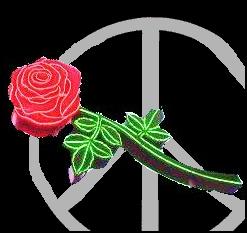UN
Human Rights forum adopts ban on "disappearances"
By Stephanie Nebehay Thu Jun 29, 1:25 PM ET
http://news.yahoo.com/s/nm/20060629/pl_nm/rights_disappearances_dc_1
Yahoo news article from Reuters
The United Nations Human Rights Council on Thursday unanimously approved an
international treaty that would ban states from abducting perceived enemies and hiding them in secret prisons or killing them.
The International Convention for the Protection of All Persons from Enforced
Disappearance would require states to keep registers of detainees and tell their families the truth about their disappearance,
as well as paying compensation.
It still has to be adopted in the U.N. General Assembly, and then individual
governments would need to approve it.
Rights experts say the United States, in the spotlight over
allegations it has been transferring terrorism suspects to secret jails in other countries, is not expected to ratify the
pact.
The Human Rights Council, a new 47-member state forum, agreed by consensus
in its first major decision to send the pact to the General Assembly for final adoption.
Some 535 new "disappearances" were reported to the U.N. last year, many of
them in Chechnya, Colombia,
and Nepal.
The treaty has been under negotiation since 1992, inspired by disappearances
and killings of government opponents during Latin American military dictatorships in the 1970s and 1980s.
Argentine foreign minister Jorge Taiana took the floor to say it was a "historic
moment for the cause of human rights."
Officially, some 12,000 people were killed or disappeared under Argentina's 1976-1983 Dirty War, a witch hunt of leftists
by the dictatorship. Rights groups put the number at 30,000.
Bernard Kessedjian, the French envoy who chaired negotiations, said: "Perhaps
the biggest innovation is that the text lays down preventive measures, in particular those relating to detention, prison registries
and a ban on secret prisons."
The treaty offers a first definition of disappearance in international law,
calling it detention, abduction, or deprivation of liberty by state agents followed by a refusal to acknowledge deprivation
and a placing of the disappeared outside the protection of the law.
It would prohibit enforced disappearance as an international crime even under
exceptional circumstances, including war, political instability or public emergency.
It also declares that widespread or systematic practices of enforced disappearance
constitute a crime against humanity.
The Convention's fate was seen by activists as a litmus test of the inaugural
two-week session of the Council, which succeeds the widely-discredited U.N. Commission on Human Rights.
The United States,
which has only observer status at the forum, wanted the treaty to provide "a defense of obedience to superior orders" in a
criminal prosecution.

